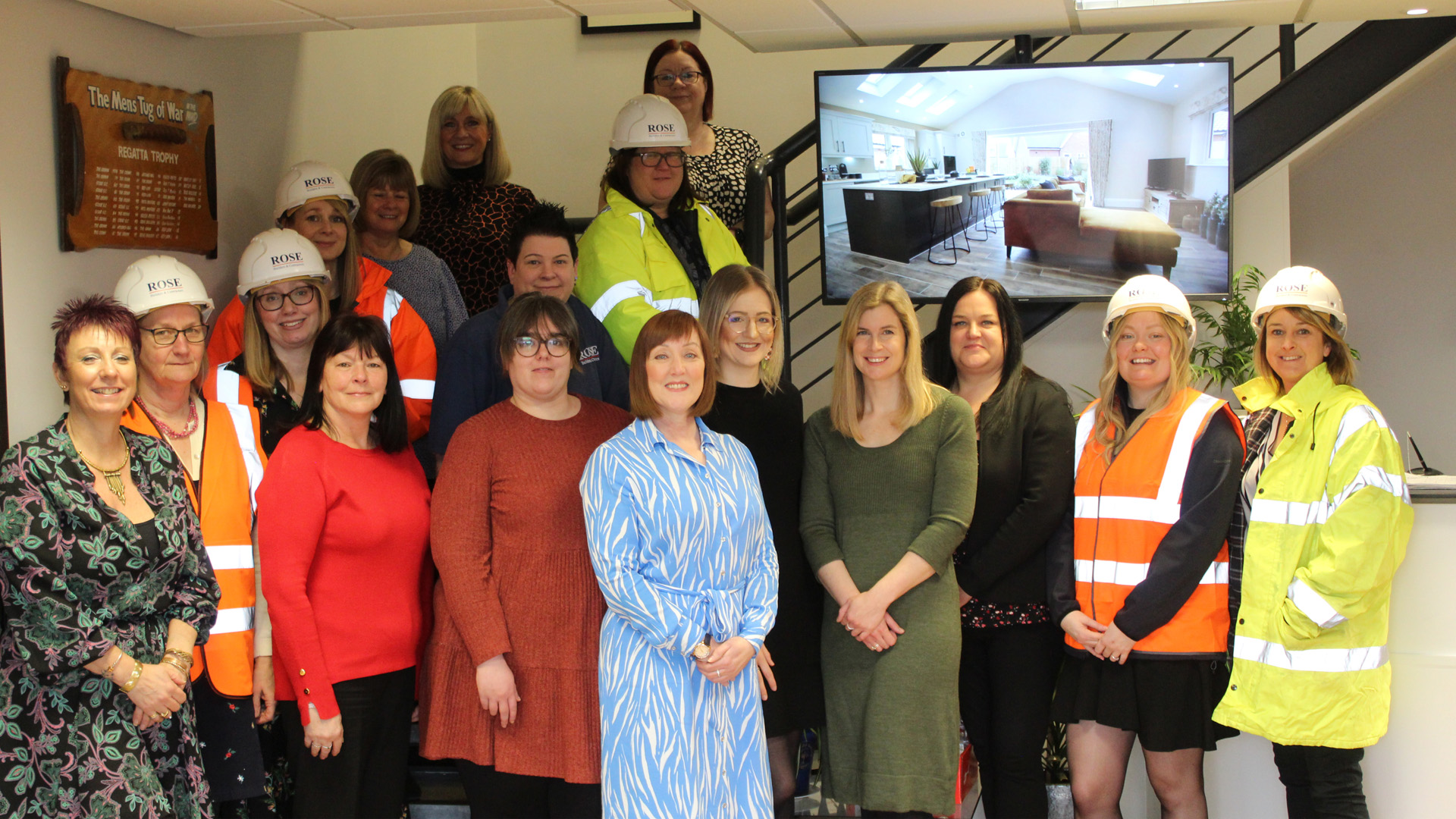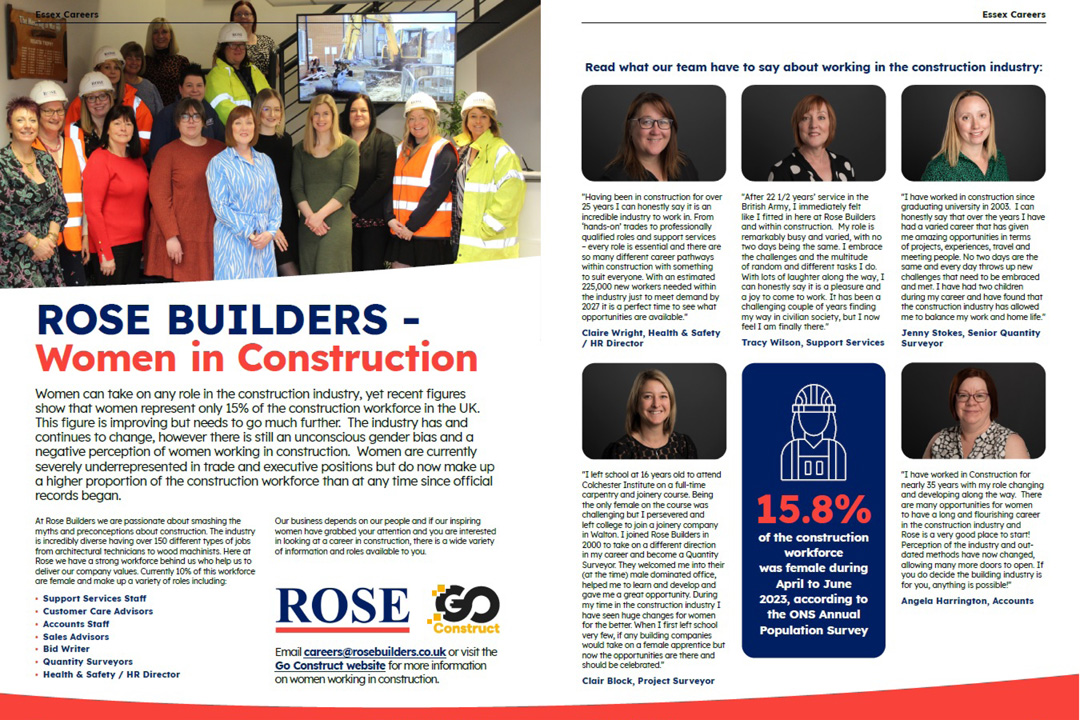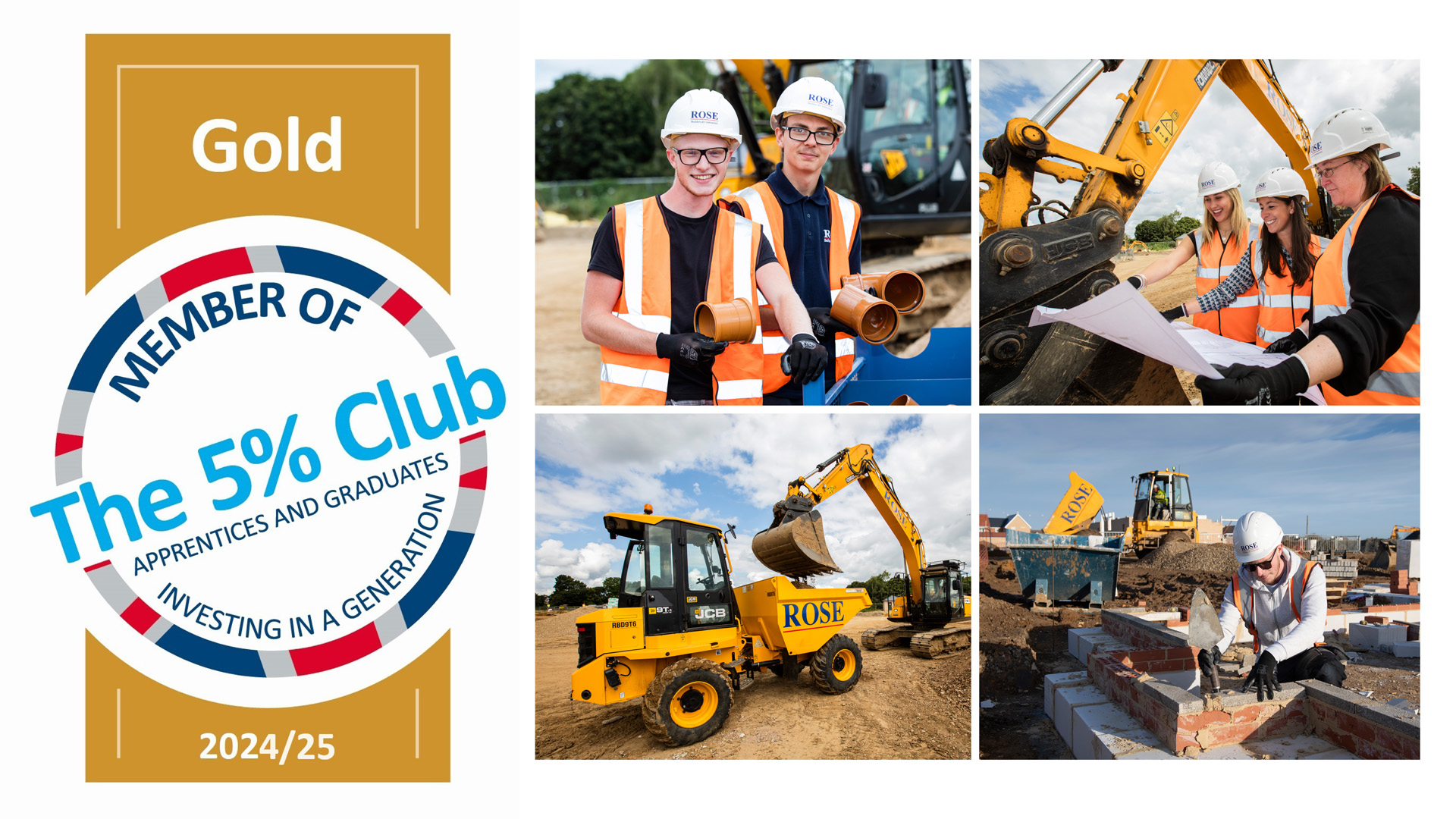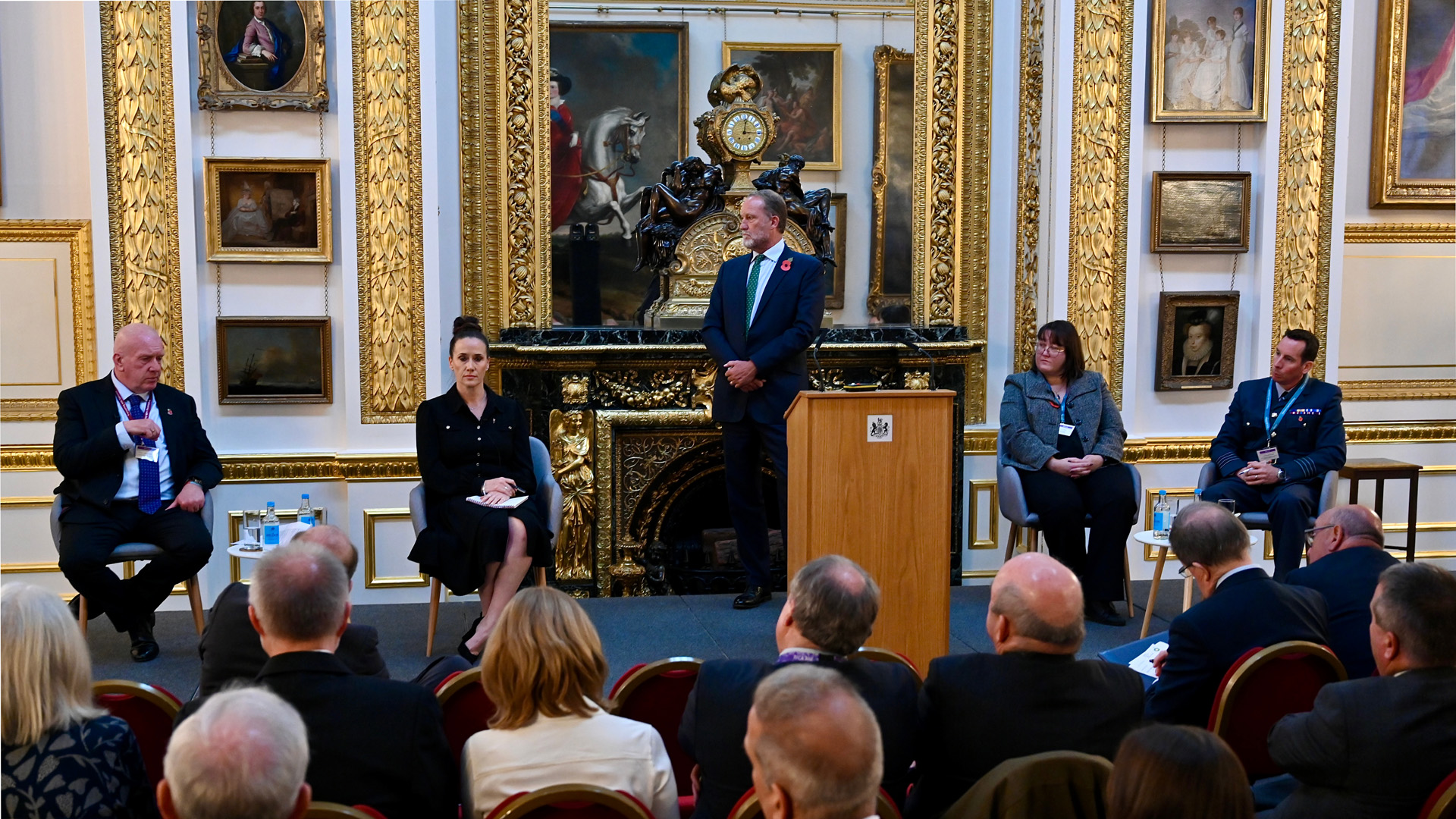
Empowering Women in Construction: Breaking Barriers and Building Futures
We were thrilled when Essex County Council invited us to contribute an overview of women in construction for their Essex Careers Guide Magazine. Our team shared personal stories about their journeys into the construction industry, aiming to inspire others who are considering this career path.
The construction industry, is experiencing a transformative shift as more women enter the field, bringing diverse perspectives, innovative ideas, and a dedication to excellence. This change is not just a trend; it’s a vital evolution towards a more inclusive and dynamic industry.
The Growing Presence of Women in Construction
Historically, construction has been one of the least gender-diverse industries. However, recent years have seen a significant increase in the number of women taking up roles ranging from on-site labour to executive positions.
Celebrating Success Stories
Many women have achieved remarkable success in the construction industry, becoming role models and trailblazers for future generations. One notable example is Jennie Daly CBE , who made history in a traditionally male-dominated field by becoming the first female chief executive of Taylor Wimpey, a leading UK housebuilder. Her appointment also marks the company as only the third in the FTSE 100 to have both a female CEO and a female chair, underscoring the significant strides women are making in the industry.
Other notable examples include Helen Moore the current Group Director of Orbit Homes Group and Non-executive Director of the Home Builders Federation, as well as our very own Claire Wright, who has been named as one of the top 100 influential women in UK construction.
Looking Forward
The future of construction is bright, with women playing an increasingly vital role. As the industry continues to evolve, it is essential to support and encourage female participation at all levels. By breaking down barriers and fostering an inclusive environment, the construction sector can build not only structures but also a stronger, more equitable future.
The industry must continue to support and champion the contributions of women, ensuring that the future of construction is diverse, inclusive, and full of possibilities.







